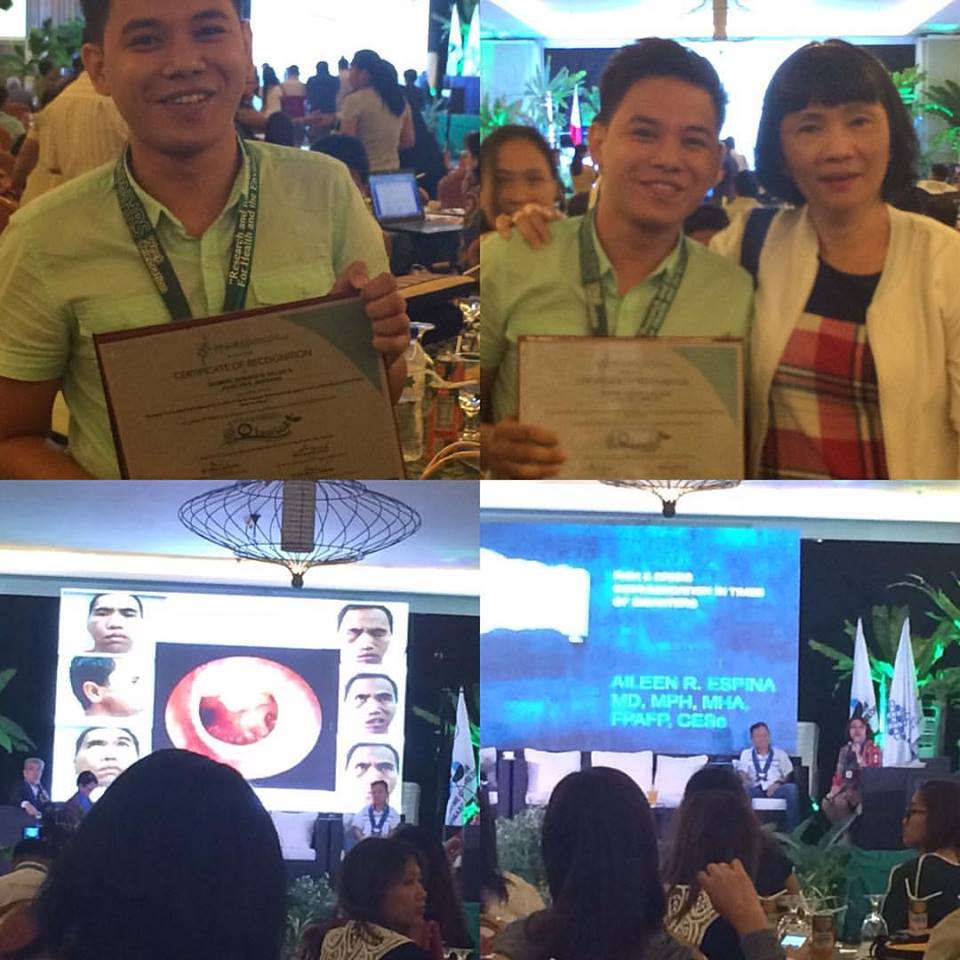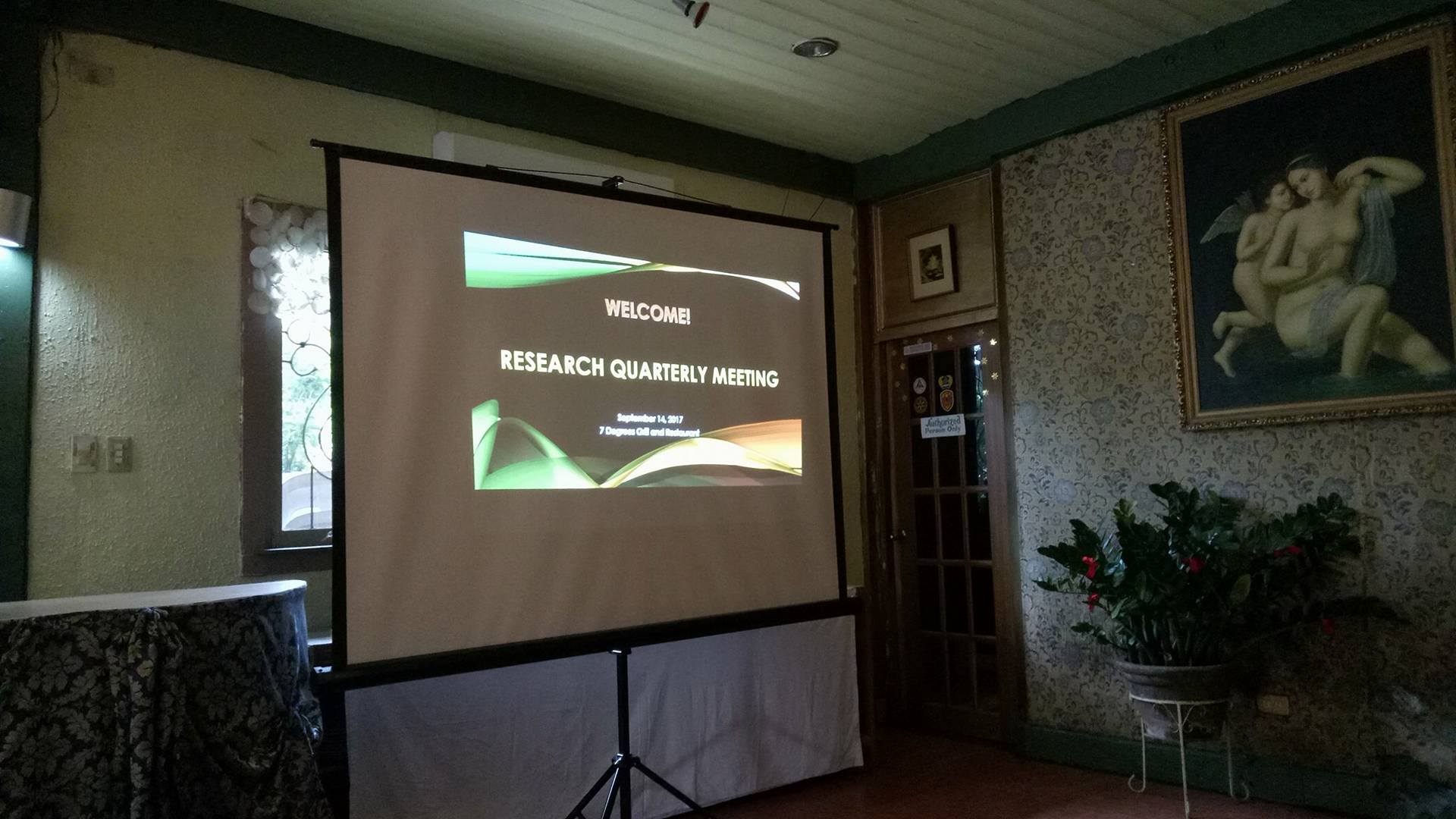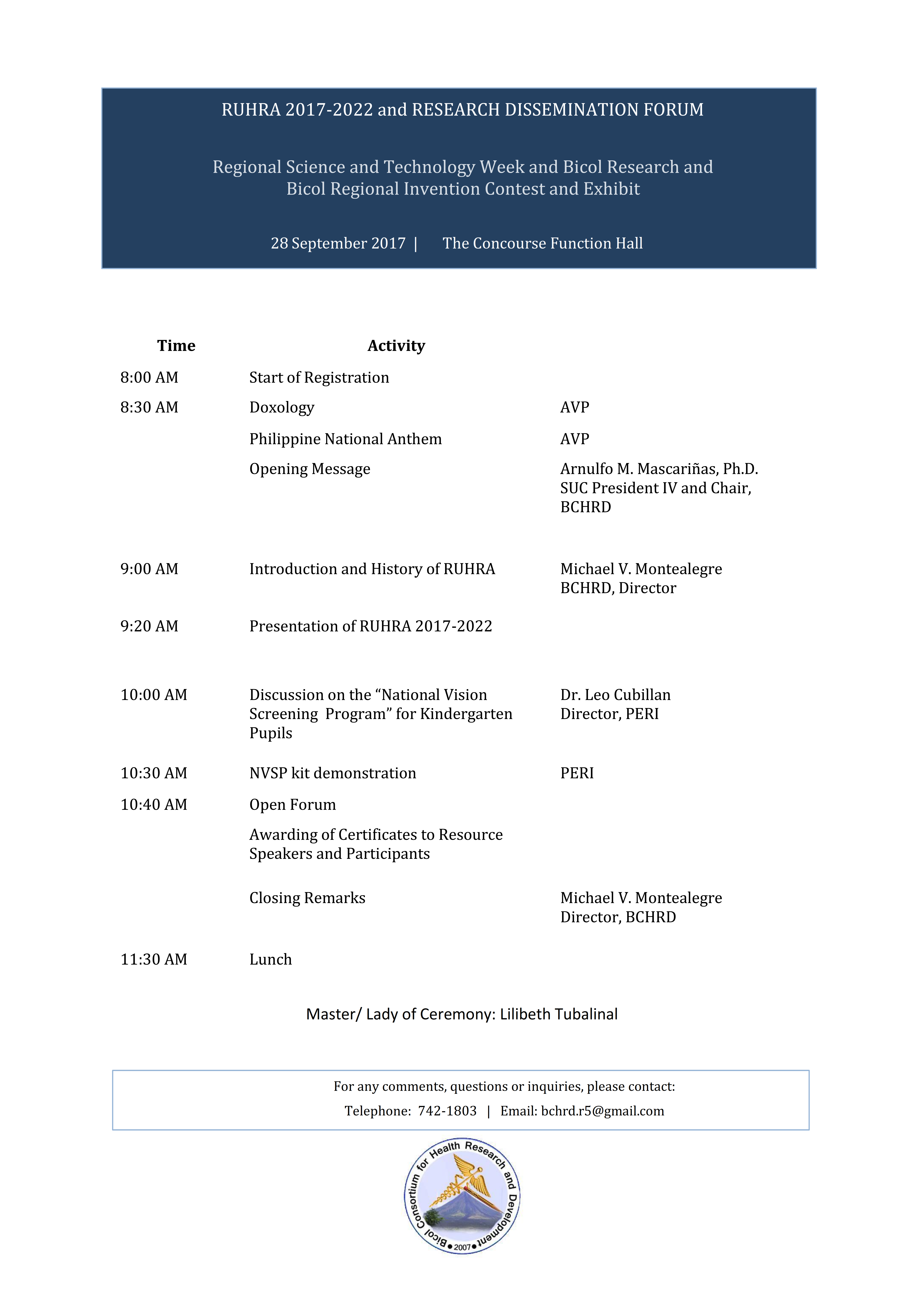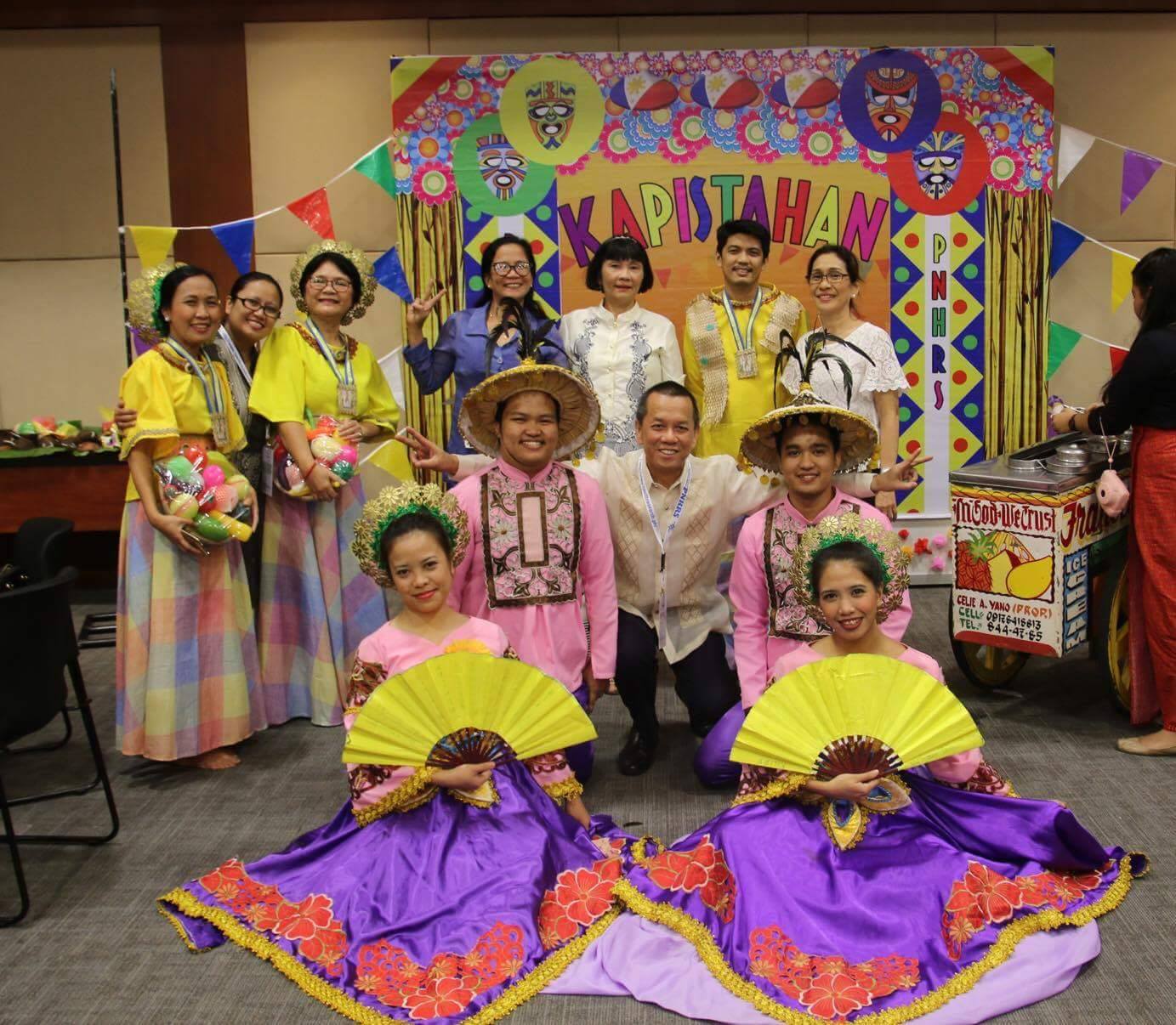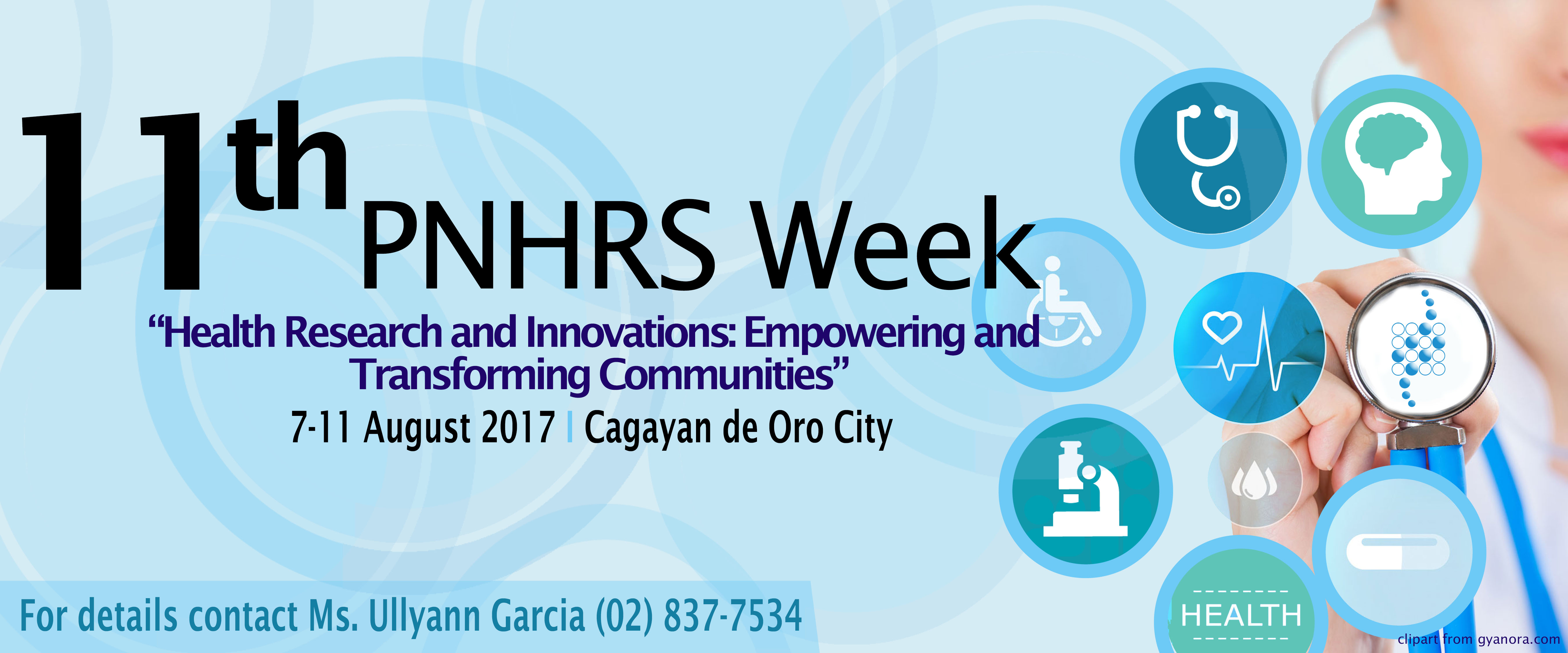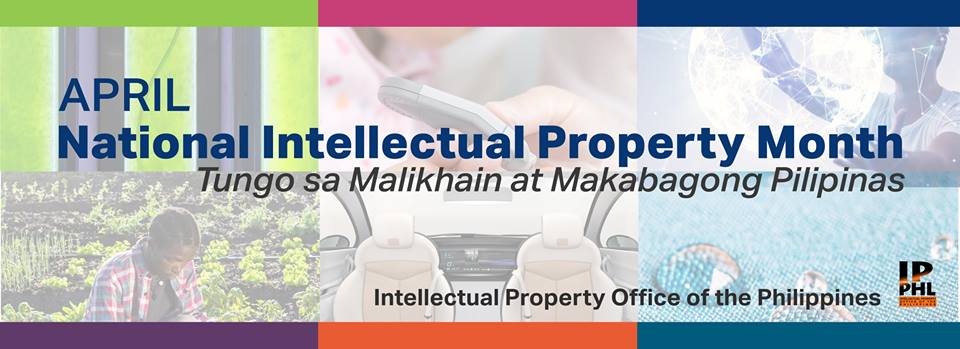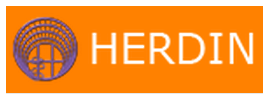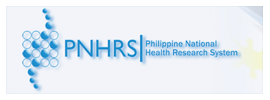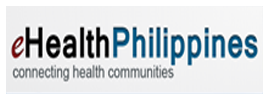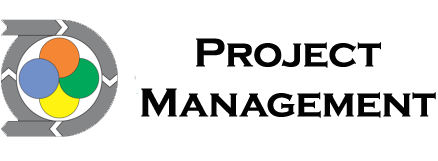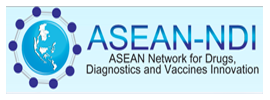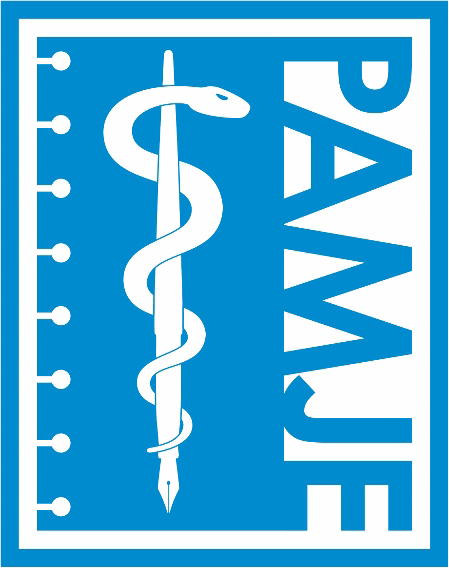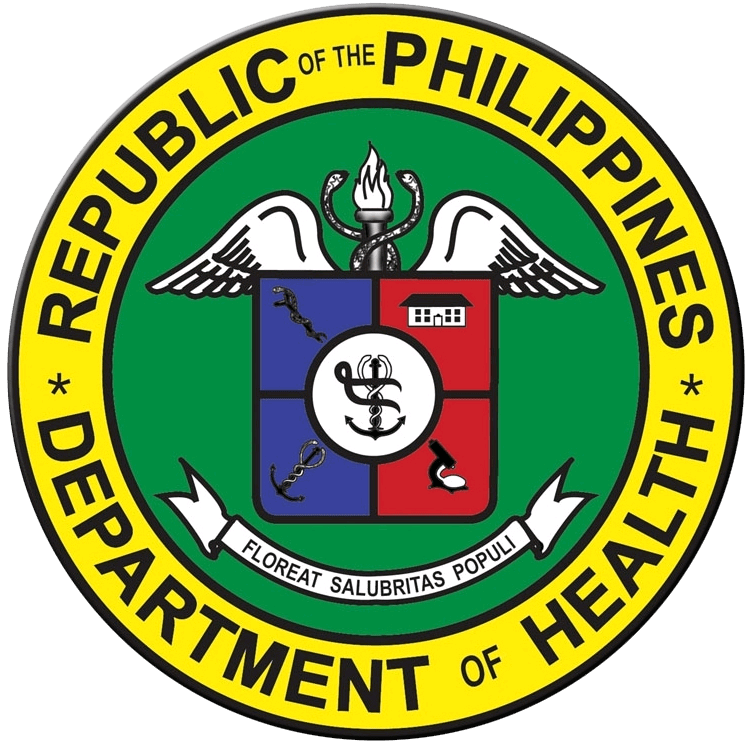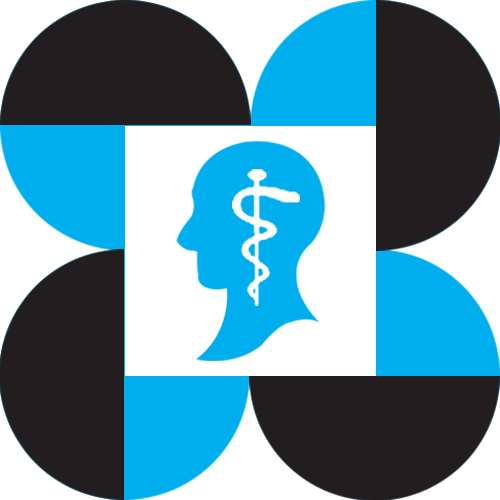During the DOH V Research Quarterly Meeting, BCHRD director, Prof. Michael Montealegre was invited to present the Regional Unified Health Research Agenda (RUHRA) of Region V. The said meeting was attended by members of DOH-V research committee members and BCHRD director and staff last September 15, 2017 at the 7 degrees Grill and Restaurant, Legazpi City.
The said meeting was conducted to create a venue for collaboration and partnership with the regional consortium and DOH V in strengthening the health researches in the region. The BCHRD represented by Director Montealegre shared to the DOH members the new program strategies such as the Bicol HeaRT and B1oSHARE. He further presented a proposal to the DOH V entitled, " Bicol HeaRT: Bicol Regional Health Research Systems Fund Initiative" wherein BCHRD shall be calling for proposals on health services (based on RUHRA 2017-2022) while the DOH V shall provide funding of the approved proposals.
As a strategy to encourage regional researchers and stakeholders to support health R & D activities in the region, the DOH Regional Office V provides support for regional research projects through a mechanism called the Bicol HeaRT: Bicol Health Research Training and Development Program. This initiative is recognized as a strategy to encourage and inspire researchers in the region to be actively involved in research projects involving health financing, health service delivery, and DOH programs and projects (operational research projects) while being mentored by research gurus in the field of biostatistics, research methodologies, research ethics, among others. The experience obtained from implementing simple yet relevant health research projects is expected to build up capabilities of individual researchers in designing, implementing and managing health research projects. Once the researcher has been able to develop a track record, and given the availability of facilities, the researcher will be encouraged to apply for the larger scale research project/program grant initiative also available in DOST-PCHRD (through its Research and Development Management Division), DOST, DOH, CHED, as well as other national and international funding agencies.




The Bicol Consortium for Health Research and Development participates in the 11th Philippine National Health Research System (PNHRS) Week last 24-25 August 2017 at Philippine International Convention Center. The country’s health research communities and stakeholders celebrates in this annual gathering to meet, build networks and attend the different workshops and parallel sessions.
This year’s theme “Research and Innovations in Health: Empowering and Transforming Communities,” gives importance and highlights the opportunities of health research and innovation in reaching, empowering, and transforming the marginalized Filipino communities.
The PNHRS Week Celebration provides a platform for stakeholders in health R&D to interact, learn from each other, to share information and experiences, to voice their concerns and to contribute research-based solution to health problems.
Pre-conference sessions such as Ethics, Society of Health Research Communicators (SHARE) Assembly, Journal Publishing, Meeting of the Regional Health Research and Development Consortia Secretariat, and Health Research and Development for Disaster Program Review were conducted last 22-23 August 2017 at Hotel Jen Manila.
12th National Medical Writing Workshop and 5th Writeshop for Young Researchers
Manila
7-8 August 2017
Organized by the Philippine Council for Health Research and Development (PCHRD) and the
Philippine Association of Medical Journal Editors (PAMJE)
Endorsed by the Asia Pacific Association of Medical Journal Editors (APAME)
CALL FOR PARTICIPATION
Application deadline: July 15, 2017
REGISTRATION IS FREE (limited slots only)
The Department of Science and Technology - Philippine Council for Health Research and Development (DOST-PCHRD), in cooperation with Philippine Association of Medical Journal Editors (PAMJE) and Asia Pacific Association of Medical Journal Editors (APAME) is organizing the 12th National Medical Writing Workshop and 5th Writeshop for Young Researchers on 7-8 August 2017 in Cagayan de Oro City. The workshop aims to help young investigators in health and health social sciences acquire practical knowledge and skills in preparing a scientific article for publication in a scholarly peer-reviewed journal. Successful applicants will be granted free workshop registration, accommodation for participants and meals during the workshop, and assigned to a mentor-facilitator who will guide them in preparing their articles for a brief presentation.
The ASEAN Data Science Explorers Competition 2017 is now open for registration. For more information, please visit ADE website at https://aseandse.org.
The DOST-PCHRD in cooperation with BCHRD, AIHO and HealthDev conducts Regional Consultation for NUHRA 2017-2022 last May 10-11, 2016 at the Hotel Venezia, Legazpi City. The said consultation was participated with twenty-nine (29) representatives and stakeholders both in public and private academic and government agencies. The two-day consultation aimed to repackage the Regional Unified Health Research Agenda aligned with the current needs of the region in terms of health.
The said consultation had series of activities and plenary sessions to come up with the RUHRA. At the end of the 2-day activity, the participants agreed on the research areas which will be used as guide for health and health-related researches for the next six years. The research areas are as follows:
|
Bicol Health Research Agenda |
|
Health Services 1. Traditional birth attendants/hilot 2. Herbolarios/ traditional healers 3. Healthcare delivery in GIDA 4. Adolescent health (i.e. teenage pregnancy) 5. Improvement of maternal and child health a. Risk assessment of maternal and child health b. Evaluation of maternal and child health service delivery c. Implementation of integrated management of childhood illnesses (IMCI) d. Status of teenage pregnancy 6. Care for people with special needs 7. Factors affecting compliance to TB management a. TB patients b. Health workers (e.g. doctors, nurses, etc.) 8. Preparedness and response of the facilities for emerging and re-emerging infectious diseases |
|
Disaster Risk Reduction and Climate Change Adaptation 1. Evacuation/camp management for health 2. Health issues/diseases related to post-disaster 3. Climate change impact on health (i.e. meteorological data and illnesses) 4. Beliefs on disasters of indigenous peoples 5. Hospital safety and readiness in disaster management 6. Capability building among community on disaster risk management |
|
Policy and governance 1. Policy on double compensation for government health professionals 2. Policy on rationalizing benefits of health researchers in academe 3. Salary scheme for health workers doing 24-hour duty 4. Effect of downgrading of LGU-owned hospitals a. Unmet policy vis-à-vis current health facility situation 5. Hospital infection control policies 6. Feasibility study on establishing DOH-retained hospital per province a. Child health status (From birth, preterm, low birth) |
|
Food Safety and Related Diseases 1. Food safety concerns, practices, and implementation for establishments and ambulant vendors 2. Parasitic infections related to food and water 3. Drinking water sources and quality in relation to diarrheal diseases |
|
Models of rehabilitation 1. Effectiveness and applicability of models of rehabilitation 2. Health interventions for drug users (i.e. minors) 3. Substance abuse 4. Mentally- ill |
|
Environmental Health 1. Health hazards and effects of small-scale mining 2. Waste management a. Healthcare waste management b. Local technology development for disposal and treatment of hazardous waste materials of laboratories and hospitals 3. Public health risks brought by vector-borne diseases and zoonotic diseases 4. Environmental health assessments 5. Environmental sanitation and hygiene (i.e. its effects on emerging and re-emerging infectious diseases) 6. Addressing occupational health hazards (i.e. compensation, policy) 7. Compliance of hospitals to infection control |
|
HIV/AIDS 1. Awareness and prevention 2. Safe blood supply |
|
Lifestyle-related diseases 1. Risk factors among younger population 2. Lifestyle changes and its effect on health among business process outsourcing (BPOs) 3. Health and wellness among industry workers (e.g. farmers, fisherfolks, etc.) |
|
Human Resources for Health 1. Ratio of healthcare professionals to clientele (e.g. hospitals, communities) and its impacts of health care delivery 2. Multi-tasking efficiency vs. workload studies 3. Streamlining of health information systems and efficiency of health workers 4. Benefits/ hazard pay for responders with salary grade 19 and above |
|
Health Information 1. Factors affecting timeliness of reporting of health data to DOH 2. Information systems development for health |
|
Mental health and psychosocial intervention 1. Promoting mental and psychosocial health 2. Addressing gender issues
|
|
Health Financing 1. Mapping of appropriating funds for health (e.g. health research) 2. Impact of health insurance coverage to people’s health 3. Point-of-care implementation sustainability of PhilHealth benefits |
|
Health Technology Development 1. Ethnobotany of agroforestry species in ancestral domains/ indigenous peoples communities 2. Natural products for medical use (i.e. material science) 3. Drug-discovery and development (i.e. endemic plant species) 4. Invention of novel and/or innovative medical equipment |
|
Migration and Health 1. Local migration 2. International migration implications (e.g. ASEAN integration, travel-related diseases, pandemics, etc.) 3. Transboundary issues on health |
MANDATORY TO SUBMIT:
q Completed and signed Checklist for Applicants
q BCHRD-REC Application Form
q Six (6) copies of the final protocol or amendments (when applicable)
q Six copies of Participant Information Sheet for each group of participants involved in the study
q Six (6) copies of Informed Consent Form for each group of participants involved in the study (written in
English and Filipino or dialect spoken and understood by research participants)
q Curriculum vitae of project investigator(s)
SUBMIT IF RELEVANT:
q All Validated Questionnaires to be used as part of the study
q Researcher designed Questionnaires
q Focus Group Topic Guide
q Evidence of approval from other ethics committees (where relevant)
F For revised applications:
q Always submit a covering letter outlining the changes that have been made
qEnsure amended documents have been labelled as such and have been updated with a new version number and date in the footer of the document
Download the forms here: https://goo.gl/K7FYCj
Research and Development (R&D) Grant
As part of the BCHRD campaign on producing health researches, we are happy to announce that we are now open for submission of health and health-related proposals for 2017. Proposals submitted shall be subject to a screening process and will be determined as to which research institution it shall be forwarded /endorsed for approval and funding. The BCHRD’s mother agency, the DOST- PCHRD funds research proposals that are aligned with the National Unified Health Research Agenda (NUHRA) and the Regional Unified Health Research Agenda (RUHRA).
RUHRA Research Priorities of Region V
A. HEALTH SERVICE DELIVERY
1. Improvement of Maternal Health and Nutrition
a. Assessment of the health status of women
b. Assessment of the KAPs of women in their Perinatal Period
c. Effectiveness of IEC materials on maternal health care
d. Evaluation of the maternal health service delivery
2. Improvement of Child Health and Nutrition
a. Assessment of the Health Status of Children
b. Assessment of Feeding Programs in Day Care Centers (3 -6 y/o)
c. Infant Feeding Program
d. Review and Analysis of the Existing BEmONC/CEmONC in terms of Facilities, human
resource expertise, usage and usefulness
e. Compliance with EPI
f. Evaluation of the Family Planning Program
B. HEALTH DEVELOPMENT
1. Prevention of Non-communicable Diseases
a. Mental Health
b. Lifestyle Diseases (diabetes, hypertension, cardiovascular diseases)
c. Trauma and Injuries
2. Prevention of Communicable Diseases
a. STI & HIV
b. TUBERCULOSIS (MDR)
3. Herbal in Various Forms
a. Inventory of Herbal Plants in the Bicol Region(including pictures, location, parts of the plants used, common names and uses)
b. Preparation and Utilization of Indigenous Herbs for Common Illnesses
c. Dosage forms of herbal medicine
4. Functional Foods
a. Beneficial/Potential hazards of the following: Malunggay, Ginger, Garlic, Yakon,
Cassava and Siling Labuyo
C. SOCIO- ENVIRONMENTAL HEALTH CONCERNS
1. Environment and Climate Change
a. Health effects of Climate Change among Vulnerable Groups (Elderly & Children)
Ø Community Development
1. Health and sanitary Practices Among residents of resettlement Areas
2. Health Preparedness and Capabilities during Emergencies
Ø Waste Management
1. Level of Implementation of Local Ordinances on Waste Management
2. Hospital Waste Management
D. HEALTH TECHNOLOGY DEVELOPMENT
Ø Technology Development
1. Techno Verification on _______for health use.
2. Utilization and Production of Yakon Chips as Dietary Food Supplement
Ø Knowledge Management
1. Adoption of Health Data Base System in the Bicol Region
2. Surveillance of Reported Infectious Diseases
E. HEALTH FINANCING
Review Procedures
Approval of proposals for research grants will be based on a multi-level review process.
1. In-house screening in terms of alignment to the research priorities, duplication, and completeness of requirements.
2. Technical review by external consultants based on the following criteria:
Technical merit
Data management
Relevance/significance
Marketability potential (for product-based proposals)
Feasibility (practicality, cost, time)
Proponent’s/ Institution’s capacity
3. Proposals reviewed shall be endorsed by BCHRD to DOST-PCHRD. Final approval by the PCHRD Governing Council or the PCHRD Executive Director depending on the recommended total budgetary requirement of the proposal.
In each stage of the review process, the proponent may need to revise the proposal on the basis of the recommendations of the reviewers.
The review process will take approximately 75 working days provided that all the requirements had been submitted.
Who may apply
Filipinos with at least a Master’s Degree in a relevant field, have proven research competence / track record, and employed in universities/colleges, research agencies/institutes, hospitals, and other health related agencies are eligible to apply for the research grant.
How to apply
The proponent should submit the following requirements online through the BCHRD secretariat
Project Proposal following the PCHRD Detailed Proposal Form – two (2) copies
Work plan Schedule (Gantt Chart of Activities)
Proposed Line-Item Budget (LIB) (DOST-GIA LIB Form)
Counterpart Funding of Implementing Agency
Biosafety Clearance, if applicable
Institutional Animal Care and Use Clearance, if applicable
Ethics Clearance (for studies involving human subjects)
Informed Consent Form
Case Report Form, if applicable
Endorsement of Agency Head
Curriculum Vitae of Proponent(s)
Duties and Responsibilities of each Project Personnel
Submit your letter of request and the requirements to:
ARNULFO M. MASCARIÑAS,Ph.D.
SUC President and BCHRD Chairperson
Bicol University, Legazpi City
Regional Research Fund
Regional Research Fund (RRF) is viewed as a way to encourage new researchers to be actively involved in health research activities without having to compete with more experienced researchers. These RRF projects are intended to build up the capabilities of individual researchers in designing, implementing and managing health research projects.
What proposals may qualify
Research proposals which address priority health problems/issues identified in the Regional Unified Health Research Agenda (RUHRA) and/or National Unified Health Research Agenda (NUHRA) of the Philippine National Health Research System (PNHRS) are going to be reviewed by the RHRDC and PCHRD. The proposals should have a duration of six months to one-year and a budgetary requirement not exceeding FIVE HUNDRED THOUSAND PESOS (P500, 000.00).
Who may apply
Regular staff and faculty members of research institutes, medical and allied health sciences, hospitals and other health-related agencies may submit proposals to the RHRDC, properly endorsed by the head of their agency. Likewise, medical residents of hospitals may submit proposals provided that he or she will be working under the supervision of a more experienced researcher affiliated in the same institution.
In the continuous development of the Rx Box Program of the National Telehealth Center, information dissemination through forums of stakeholders, private and public local government units are being widely implemented. The Rx Box program is an effort of the Department of Science and Technology and the National Teleheath Center to provide better access to life-saving health care delivery to isolated and disadvantaged communities nationwide.
The RxBox allows diagnosis of the patient’s conditions within the health facility. The following are its features: 1) Blood pressure monitor; 2) Pulse Oximeter; 3) Electrocardiogram; 4) Fetal Heart Monitor; 5) Maternal tocometer and 6) Temperature sensor. It is a multi-component program which aims to build the capacities of frontline health workers for the ethical use of health technologies, the RxBox telemedicine device, Community Health Information and Tracking System (CHITS) and telemedicine.
A roll out of 1,000 units of Rx Box will be distributed among regions of the Philippines. There are approximately 18 units to be distributed in Region 5, all of which are GIDA (Geographically Isolated and Disadvantage Areas). The list of which are still for finalization.
Last August 18, 2016, staff from BCHRD attended the Stakeholder’s Forum and Technology Demonstration on the Rx Box Roll-out Project in Bicol at AVP function hall, Tahao Road, Legazpi City. The said forum was organized by the Department of Science and Technology V in cooperation with UP-National Telehealth Center. The said forum was attended by stakeholders from local government units, Provincial Science and Technology Centers, media , DOH personnel and hospital heads. Highlights on the use of the Rx Box and its implementation were discussed by the RxBox Project Manager, Dr. Kristine Mae Magtubo of UP-National Telehealth Center. The use of the units were also demonstrated by the technicians of the NTC.
During the Opening program of the 10th Philippine National Health Research System (PNHRS) Week Celebration last August 10, 2016 at the Citystate Asturias Hotel, Puerto Princesa City, Palawan,the BCHRD- Research and Ethics Committee was awarded with Level-2 Accreditation by the Philippine Health Research Ethics Board (PHREB). The said award is another milestone for the BCHRD. Awarding of the certificate was given by Dr. Jaime C. Montoya, Executive Director of PCHRD, Dr. Leonardo De Castro, Chairperson of Philippine national Health Research Ethics Board and Dr. Maria Salome N. Vios, Chairperson of PHREB Sub-committee on Standards and Accreditation. Present during the awarding ceremony are some BCHRD-ERC Members, consortium members, BCHRD staff and BCHRD Director, Prof. Michael Montealegre.
Indeed, another job well done and a step closer to BCHRD’s goal of producing ethically- sensitive and quality health and health-related researches to address the needs of the Bicolanos.
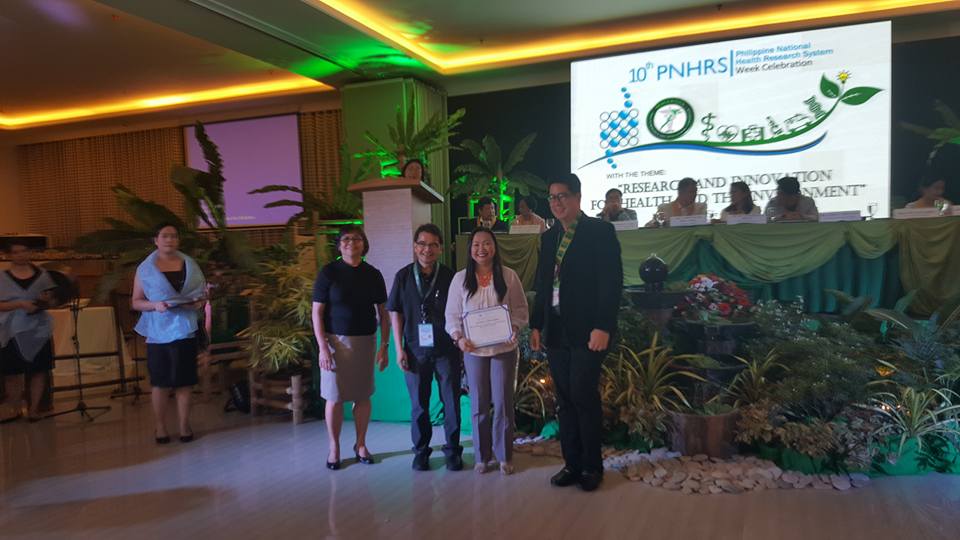
The BCHRD’s entry for the Oral Paper Presentation (Student category) wins third (3rd) place during the 10Th Philippine National Health Research System (PNHRS) Week Celebration last August 9, 2016 at the Citystate Asturias Hotel, Puerto Princesa City, Palawan. His paper entitled, “ Screening for Intestinal Anti-inflammatory Activity of Alpinia galanga (Zingerberaceae) Against Acetic-Acid Induced Colitis in Mice (Mus musculus)” was presented together with four (4) other participants screened by the technical committee of the PNHRS.
Each regional consortium were requested to submit two (2) entries for student category oral paper presentation and among the submitted entries, only five (5) entries were shortlisted to present during the contest proper. Baldo won a certificate of recognition and cash prize of Five Thousand Pesos (Php 5,000.00).
